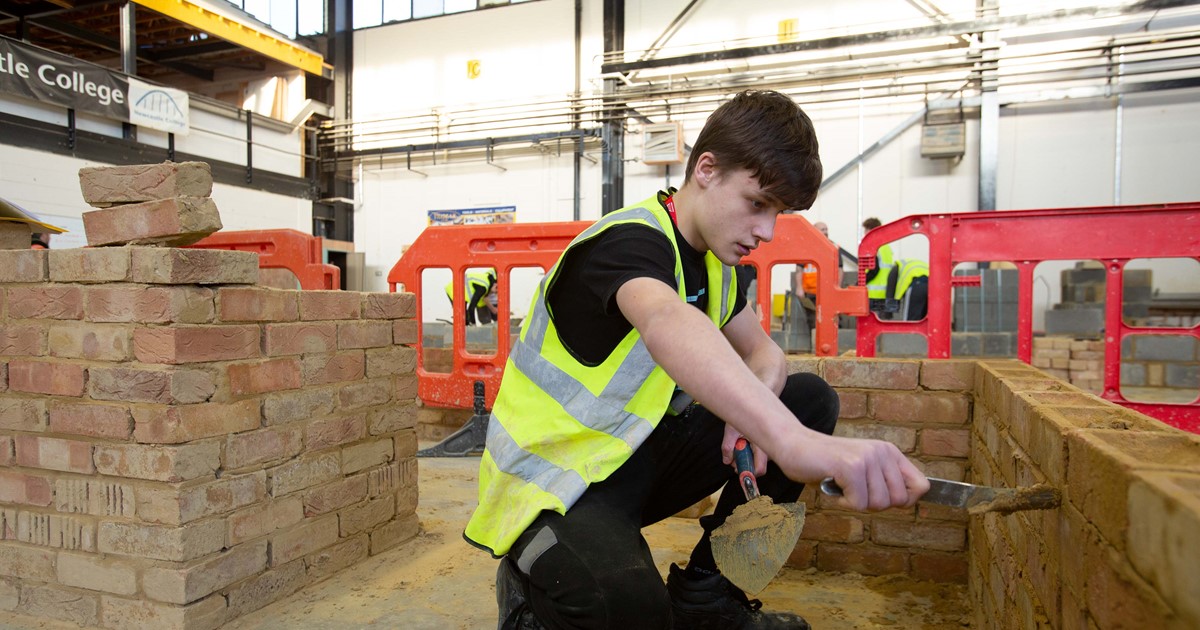From zero experience to skilled professional: discover how a construction apprenticeship could be your gateway to Britain’s £110 billion building industry
The UK construction industry stands at a pivotal moment, facing unprecedented challenges and opportunities. With a projected skills gap of over 200,000 workers by 2025, construction apprenticeships have emerged as a vital solution, transforming how we build and maintain Britain’s infrastructure. This comprehensive guide explores how these programmes are revolutionising the building trade and creating pathways to successful careers.
The Evolution of Construction Apprenticeships in Britain
Construction apprenticeships in Britain have undergone a remarkable transformation since their origins in medieval guild systems. Today’s programmes reflect a sophisticated blend of traditional craftsmanship and modern technology. The evolution has been particularly dramatic in the past decade, with the introduction of the Apprenticeship Levy in 2017 marking a significant turning point. This reform has led to more structured, industry-aligned training programmes that better serve both employers and apprentices. Currently, over 25,000 construction apprenticeships are started each year in the UK, representing a crucial pipeline of skilled workers for the industry.
Understanding Modern Construction Apprenticeships
Modern construction apprenticeships typically span between 2-4 years, combining practical on-site training with classroom-based learning. These programmes are designed to create well-rounded professionals who understand both the theoretical and practical aspects of their trade. Apprentices spend approximately 80% of their time in workplace training and 20% in off-site education, ensuring a comprehensive learning experience.
Types of Construction Apprenticeships Available
- Building and Construction Operations – Including bricklaying, carpentry, and plastering
- Electrical and Mechanical Services – Covering electrical installations, plumbing, and HVAC systems
- Civil Engineering – Including groundworks, highways maintenance, and construction operations
- Specialist Trades – Such as scaffolding, roofing, and stone masonry
- Technical and Management Roles – Including quantity surveying and construction site supervision
The Earn While You Learn Model
One of the most attractive aspects of construction apprenticeships is the financial model. Apprentices earn while they learn, starting at the National Minimum Wage for apprentices (currently £4.81 per hour) and progressing to industry-standard rates as they develop their skills. Many employers offer above-minimum wages, with some apprentices earning up to £25,000 per year in their final year of training.
The Impact on Britain’s Construction Industry
Addressing the Skills Gap
Construction apprenticeships are playing a crucial role in addressing Britain’s construction skills shortage. With 86% of employers reporting that apprenticeships help them develop skills relevant to their organisation, these programmes are essential for industry sustainability. The government’s commitment to creating 3 million apprenticeships across all sectors by 2024 includes significant support for construction trades.
Quality Standards and Innovation
- Implementation of rigorous training standards overseen by the Institute for Apprenticeships
- Integration of modern construction techniques and technologies
- Focus on sustainable building practices and materials
- Enhanced safety protocols and certification requirements
- Regular assessment and qualification frameworks
Benefits for Employers and Apprentices
Employer Advantages
Employers gain significant benefits from participating in apprenticeship programmes. They receive government funding support, can shape their workforce to meet specific needs, and often see improved productivity and staff retention. Companies can recover up to 95% of training costs through government schemes, making apprenticeships a cost-effective way to build a skilled workforce.
Apprentice Opportunities
- Debt-free route to professional qualifications
- Practical experience in real work environments
- Industry-recognised certifications
- Clear career progression pathways
- Competitive salary potential (up to £40,000+ for qualified trades)
The Future of Construction Apprenticeships
Technology Integration
Modern apprenticeships increasingly incorporate digital skills and new technologies. From Building Information Modelling (BIM) to drone surveying and 3D printing, apprentices are learning to work with cutting-edge tools that are transforming the construction industry. This technological integration ensures that the next generation of construction professionals is prepared for the digital future of building.
Sustainability Focus
Environmental considerations are now central to construction apprenticeships. Programmes include training in sustainable building techniques, renewable energy systems, and eco-friendly materials. This focus helps ensure that Britain’s construction industry can meet its commitment to achieving net-zero carbon emissions by 2050.
Getting Started with a Construction Apprenticeship
- Entry Requirements: Usually include GCSEs in English and Maths (Grade 4/C or above)
- Application Process: Apply through official apprenticeship websites or directly with employers
- Documentation: Prepare CV, proof of qualifications, and right to work documents
- Interview Preparation: Research the trade and company, prepare for practical assessments
- Starting Dates: Most programmes begin in September, but some offer flexible start dates
Conclusion: Building Britain’s Future
Construction apprenticeships are more than just training programmes; they’re transforming Britain’s building trade by creating a new generation of skilled professionals. With the construction industry’s continued growth and the increasing demand for sustainable building practices, apprenticeships offer a viable path to a rewarding career. Whether you’re a school leaver looking for your first step into construction or an employer seeking to develop your workforce, apprenticeships provide a structured, supported route to success in Britain’s vital construction sector.
FAQ
Is it hard to get an apprenticeship?
It’s highly-competitive. To be an apprentice, you have to get out there, apply for work, impress at interview and be offered a job. You need to stand out as a must-hire candidate that an employer can see will be a good fit for their business with the potential to grow into the role and progress in the organisation.
Do apprentices get paid?
As of Jul 1, 2025, the average hourly pay for an Apprenticeship in the United States is $21.11 an hour.
Is apprentice a good career?
Apprenticeships often provide clear pathways for career advancement, with opportunities for further certifications and leadership roles. Career advancement may require additional degrees or certifications, often requiring further education and expense.
Sources
[1] https://constructioncareers.org/apprenticeship/
[2] https://www.carrolldaniel.com/careers-old/apprenticeship/
[3] https://www.blueridge.edu/programs-courses/apprenticeships/construction-apprenticeship/


Leave a Reply